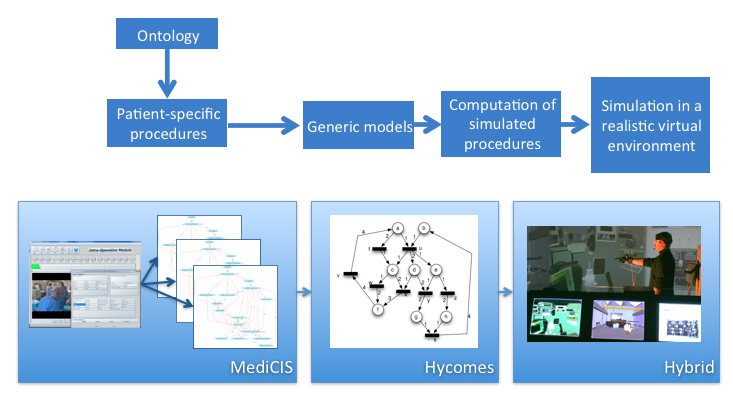S3PM: Synthesis and Simulation of Surgical Process Models
Surgical education relies on an old “see one, do one (and teach one)” paradigm. It is now expected that surgical education should rely on computer based systems with simulation capabilities. All aspects about the surgical decision making processes should be part of such computer based teaching systems. Various researchers emphasized the importance of both conceptual and procedural knowledge in the decision making process. Some are explicit (mainly data, information and knowledge about the patient) and some are implicit, such as the surgical process expertise. A surgical teaching system should take into consideration such procedural knowlegde and expertise. The main objective of this project is to study methods allowing modeling the surgical procedural knowledge from surgical cases observations.
In this project we propose to study a solution for the computation of surgical procedural knowledge models from recordings of individual procedures, and their execution. We evolve and adapt methods developed by MediCIS, Hybrid, and Hycomes teams for computing surgical procedural knowledge models and representing and simulating them (Figure 1). The goal is to develop an enabling technology for procedural knowledge based surgical simulation systems. In this project, we demonstrate its potential added value for high-level abstraction teaching applications.
The project is divided into two tasks. The first task aims at studying methods for computing and representing generic surgical process models from a population of individual descriptions of surgical procedures represented by patient specific surgical process models. The second task aims at studying and adapting simulation engines for the execution of generic process models and finally studying the efficacy of the global approach on a specific application (i.e., surgical teaching).


